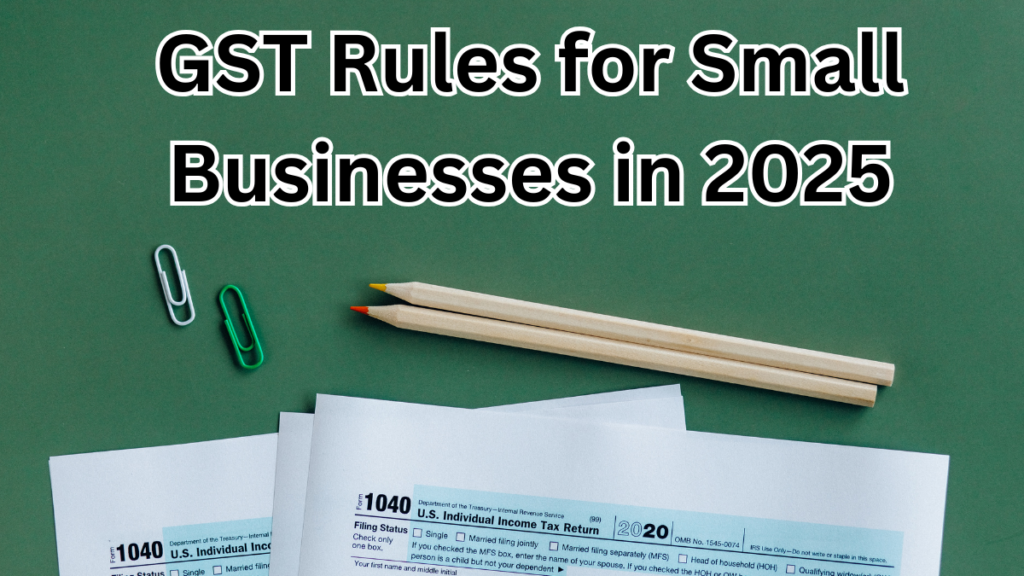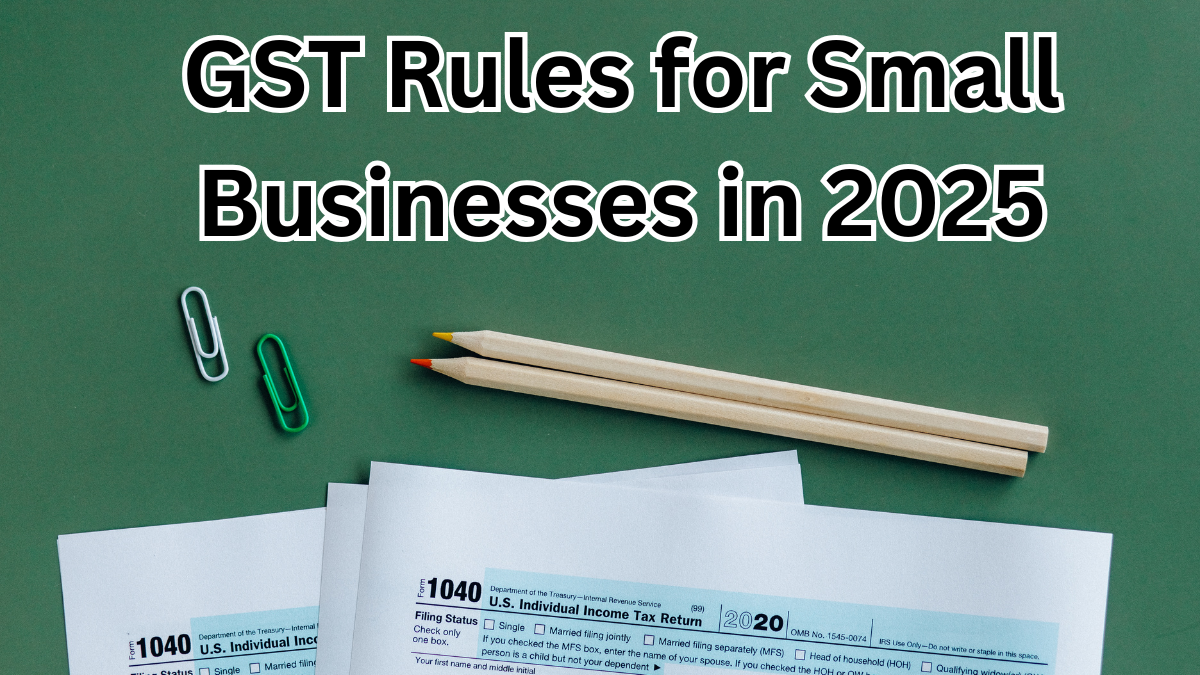As we step into 2025, small businesses in India face significant changes in the Goods and Services Tax (GST) framework. The government has introduced new GST limits, updated filing procedures, and modified fines to ensure better compliance. This article breaks down the key changes that small business owners need to be aware of for the year 2025, including GST limits 2025, the impact of late fees for GST returns, and the latest updates on GST compliance for small businesses.

New GST Limits for 2025
With the evolving landscape of business in India, the government has revised the GST limits for 2025, offering small businesses an opportunity to scale without the burden of complex compliance.
-
Increased GST Exemption Threshold:
-
For small businesses with an annual turnover of up to ₹40 lakhs (up from ₹20 lakhs), the GST exemption remains. This means that businesses with turnover under this threshold do not need to register for GST.
-
-
GST Registration Requirement:
-
If your business exceeds ₹40 lakhs in turnover (₹20 lakhs for some special categories), you will be required to register for GST.
-
These updates provide some relief for micro and small businesses, allowing them to grow while still remaining outside the formal GST structure.
Late Fees for GST Returns
As GST compliance becomes more streamlined, the late fees for GST returns have been restructured. It’s crucial for small businesses to stay on top of their filings to avoid additional charges. Here’s what you need to know:
-
Revised Late Fees:
-
If you miss filing your returns within the due date, the late fees are calculated based on the number of days the return is delayed. The fees are capped at ₹200 per day, making it important to avoid procrastination in filing.
-
-
GST Returns Due Dates:
-
Small businesses need to be aware of the due dates for filing GST returns to avoid incurring late fees. With the new GST filing rules, returns must be filed on time to ensure smooth operations and minimize costs.
-
By understanding the new fine structure, small businesses can make sure they stay compliant without facing unnecessary penalties.
New GST Filing Rules
With the digital era making things easier, the new GST filing rules in 2025 aim to simplify the process while making it more accessible for small businesses. Below are some major updates:
-
Online Filing is Mandatory:
-
In 2025, the government has made online GST filing mandatory for all businesses, including small enterprises. The GST portal has been upgraded to provide a more user-friendly experience, but it’s important to familiarize yourself with the platform for easy compliance.
-
-
Simplified GST Returns:
-
The return filing process has been made simpler with the introduction of a unified GST return form, reducing paperwork and administrative burden.
-
-
E-Invoicing:
-
E-invoicing has been introduced for businesses with a turnover above ₹5 crore, and its scope may expand in the future. Small businesses should prepare to comply with this digital invoicing system.
-
GST Compliance for Small Businesses in India – 2025
Ensuring GST compliance for small businesses in India 2025 is essential to avoid penalties and streamline operations. Here’s a checklist for compliance:
-
GST Registration:
-
Ensure that you are registered for GST if your business turnover crosses the prescribed limit.
-
-
Timely Filing of Returns:
-
Be diligent about filing your GST returns on time to avoid late fees.
-
-
Maintain Accurate Records:
-
Keeping track of sales, purchases, and input tax credit is key to accurate GST filing.
-
-
Adopt Technology:
-
Use accounting and GST filing software to simplify the compliance process.
-
By staying proactive with these compliance measures, small businesses can benefit from the full advantages of the GST regime without getting caught in legal issues.
Key Takeaways
-
The GST exemption threshold has been raised to ₹40 lakhs in turnover.
-
Small businesses need to be aware of late fees for GST returns and file on time to avoid penalties.
-
The new online filing rules have streamlined the filing process, but businesses need to stay updated on the latest regulations.
-
Accurate record-keeping and using technology will help ensure smooth GST compliance in 2025.
FAQs
-
What is the new GST limit for small businesses in 2025?
-
The new GST limit for small businesses in 2025 is ₹40 lakhs in turnover. Businesses under this limit are exempt from GST registration.
-
-
What happens if I miss the GST return filing deadline?
-
If you miss the GST return filing deadline, you will incur late fees. The penalty is ₹200 per day of delay, with a cap in place to avoid excessive fines.
-
-
Are the GST filing rules for small businesses different in 2025?
-
Yes, the GST filing rules have been simplified in 2025. Online filing is mandatory, and businesses must use the new unified return form for easy filing.
-
-
How can small businesses stay compliant with GST in 2025?
-
Small businesses can stay compliant by registering for GST (if applicable), filing returns on time, maintaining accurate records, and utilizing accounting software for seamless filing.
-
Click here to learn more



